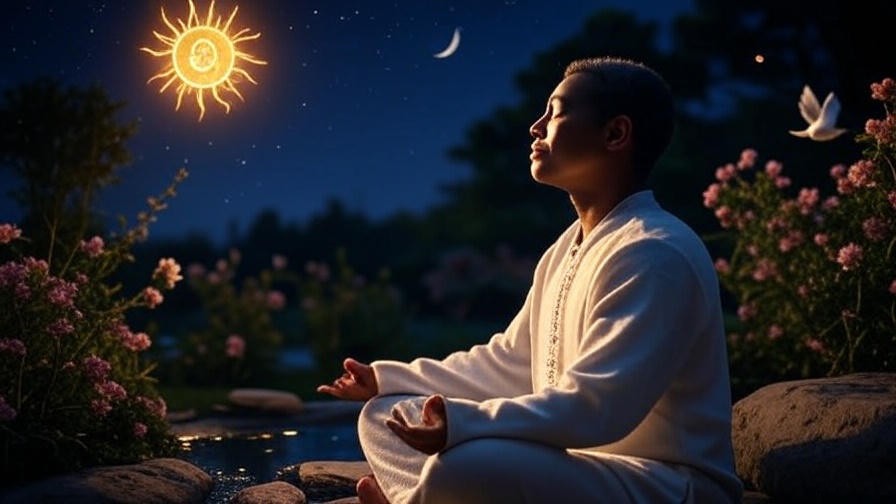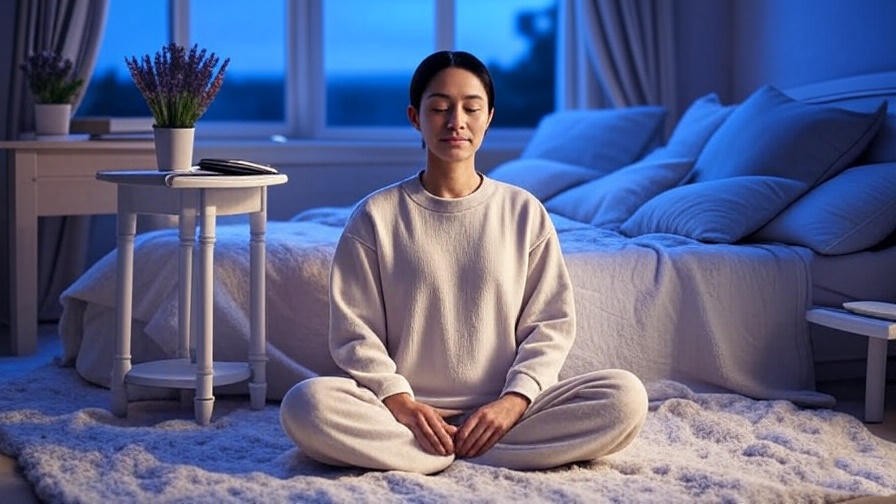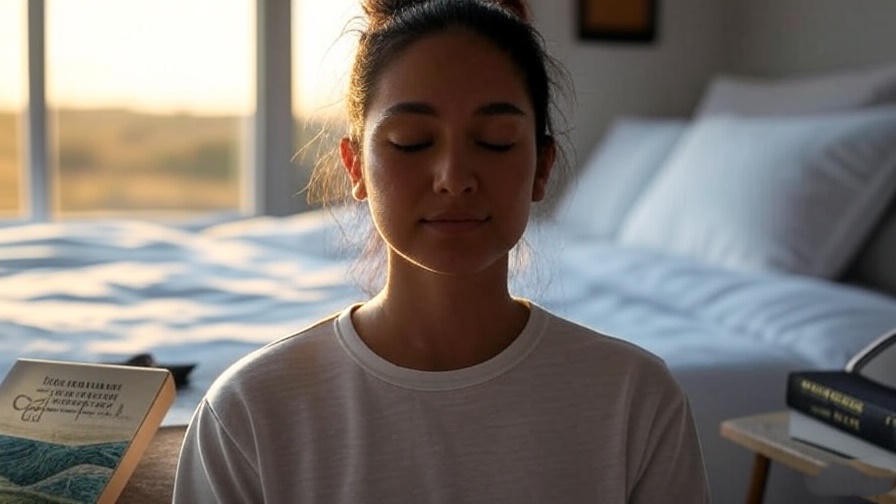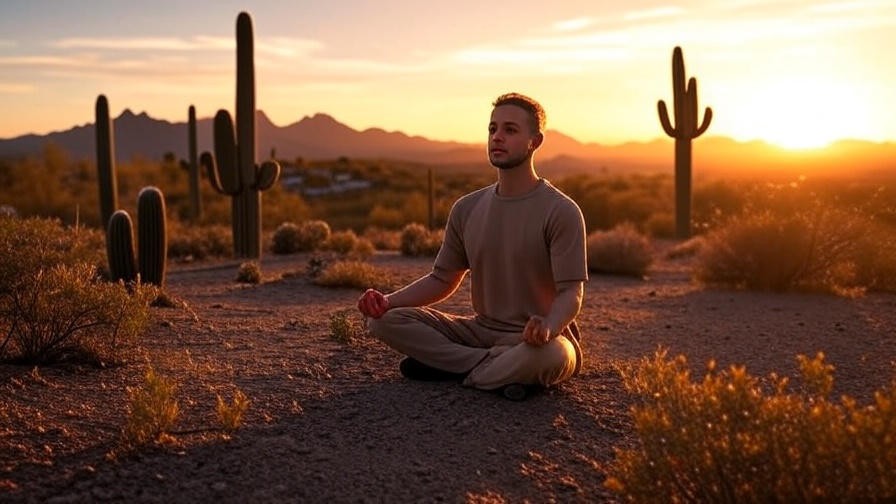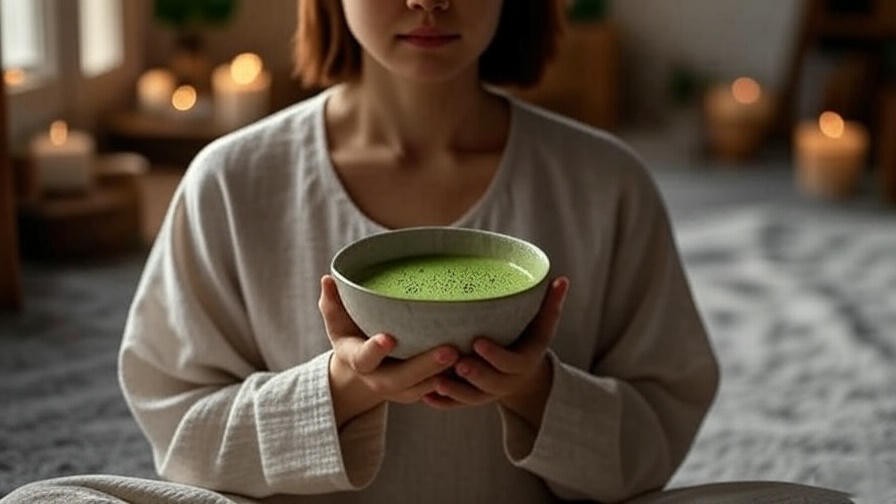Tossing and turning at night, weighed down by stress, or feeling disconnected from joy? You’re not alone. In a world buzzing with endless demands, finding true peace can feel like chasing a dream. Enter Glorious Mysteries meditations—a timeless spiritual practice that blends mindfulness, reflection, and hope to transform your well-being. Rooted in the Catholic Rosary but accessible to all, these meditations offer a path to better sleep, deeper happiness, and holistic balance. Backed by spiritual wisdom and scientific research, this article will guide you through using the Glorious Mysteries to calm your mind, uplift your spirit, and nurture your body. Expect practical steps, expert insights, and a roadmap to inner peace that fits seamlessly into your life.
What Are the Glorious Mysteries Meditations?

Understanding the Rosary and Its Mysteries
The Rosary is a meditative prayer practice cherished in Catholic tradition, yet its benefits extend to anyone seeking mindfulness and calm. At its heart are the Glorious Mysteries—five pivotal events from Christian theology: the Resurrection, Ascension, Descent of the Holy Spirit, Assumption, and Coronation. Each mystery invites contemplation on themes of hope, triumph, and divine connection, making them powerful tools for mental and spiritual renewal. You don’t need to be religious to benefit; these stories resonate as universal archetypes of resilience and joy, perfect for fostering peace in today’s chaotic world.
The Meditative Power of the Glorious Mysteries
Meditating on the Glorious Mysteries combines prayer, visualization, and reflection to quiet the mind and uplift the spirit. Each mystery serves as a focal point, guiding you into a state of mindfulness that reduces stress and enhances emotional clarity. Research from Harvard Medical School highlights how meditative practices, like the Rosary, activate the brain’s relaxation response, lowering cortisol and improving focus. The rhythmic repetition of prayers (or affirmations for non-religious practitioners) mirrors mantra-based meditation, creating a calming cadence. Whether you’re seeking better sleep or a brighter outlook, these meditations offer a structured yet flexible path to inner calm.
The Connection Between Glorious Mysteries Meditations and Holistic Well-Being
Promoting Better Sleep
Struggling to fall asleep? Glorious Mysteries meditations can help. By engaging the parasympathetic nervous system, meditation reduces stress hormones that keep you awake. A 2015 study in JAMA Internal Medicine found that mindfulness-based practices improve sleep quality by calming the mind’s chatter. For example, meditating on the Resurrection—focusing on renewal and hope—can release bedtime anxiety. Dr. Herbert Benson, a pioneer in mind-body medicine, notes, “Repetitive prayer or meditation creates a physiological shift toward relaxation, paving the way for restful sleep.” Incorporating these meditations into your evening routine can transform restless nights into rejuvenating rest.
Boosting Happiness and Emotional Resilience
The Glorious Mysteries are inherently uplifting, with themes of victory, divine love, and eternal hope. Reflecting on these stories can boost serotonin and dopamine, the brain’s “happiness chemicals.” A 2017 study in the Journal of Positive Psychology found that spiritual practices, including meditative prayer, enhance life satisfaction by fostering gratitude and purpose. For instance, meditating on the Ascension—envisioning a rise to higher purpose—can inspire optimism. Regular practice builds emotional resilience, helping you navigate life’s challenges with a lighter heart. As mindfulness expert Jon Kabat-Zinn says, “Meditation cultivates an inner spaciousness that allows joy to flourish.”
Supporting Holistic Well-Being
Holistic well-being balances mind, body, and spirit, and Glorious Mysteries meditations excel at this integration. By combining spiritual reflection with mindfulness, they address emotional stress while fostering a sense of connection to something greater. Holistic health expert Dr. Lisa Miller, author of The Awakened Brain, emphasizes that spiritual practices strengthen mental health by providing meaning and coherence. Whether you’re reflecting on the Coronation’s theme of divine fulfillment or the Holy Spirit’s inspiration, these meditations nurture a sense of wholeness, aligning perfectly with holistic wellness goals.
How to Practice Glorious Mysteries Meditations for Maximum Benefits
Setting the Stage for Meditation
Creating a conducive environment is key to effective meditation. Choose a quiet, comfortable space with dim lighting—perhaps with a candle or soft lamp to set a serene mood. A Rosary or prayer beads can enhance focus, but they’re optional. Evening sessions work best for sleep, while morning meditations boost positivity. Aim for 10–20 minutes per session. For guidance, try apps like Hallow or books like The Rosary: A Journey to the Beloved by Gary Jansen. Consistency matters more than perfection, so start where you are.
Step-by-Step Guide to Meditating on the Glorious Mysteries
- Set an Intention: Begin by identifying your goal—better sleep, inner peace, or emotional clarity. For example, “I seek calm to rest deeply tonight.”
- Introductory Prayers (Optional): If using the traditional Rosary, recite the Apostle’s Creed, Our Father, and Hail Marys. Non-religious practitioners can skip this or use affirmations like, “I am open to peace.”
- Focus on Each Mystery: For each of the five Glorious Mysteries, visualize the event and reflect on its meaning. For example, during the Resurrection, imagine light breaking through darkness, symbolizing hope. Spend 2–3 minutes per mystery.
- Incorporate Mindfulness: Pair each decade with deep breathing—inhale for 4 seconds, exhale for 6—or affirmations like, “I am renewed.”
- Conclude with Gratitude: End with a moment of silence, thanking yourself for this time of reflection.
Example: For the Resurrection, visualize Jesus rising, surrounded by radiant light. Reflect on overcoming personal challenges, breathing deeply to release tension. Journal your insights afterward to deepen the experience.
Tips for Beginners
- Start Small: Focus on one mystery per session to build confidence.
- Use Journaling: Write down thoughts or feelings post-meditation to track progress.
- Be Patient: Benefits like better sleep or increased happiness grow with regular practice. Aim for 3–5 sessions weekly.
Scientific and Spiritual Benefits of Glorious Mysteries Meditations
Backed by Science
Meditation, including Rosary-based practices, is scientifically proven to reduce stress and enhance well-being. A 2014 JAMA Internal Medicine study found that mindfulness meditation decreases anxiety and improves sleep quality by 20–30% in regular practitioners. The repetitive nature of the Rosary mimics mantra meditation, activating the brain’s prefrontal cortex for better focus and emotional regulation. Dr. Andrew Newberg, a neuroscientist studying spirituality, notes that prayer-based meditation strengthens neural pathways linked to calm and resilience. These benefits make Glorious Mysteries meditations a powerful tool for mental health.
Spiritual Growth and Inner Peace
Beyond science, the Glorious Mysteries foster spiritual growth by connecting you to themes of hope and transcendence. Reflecting on the Assumption, for instance, can inspire a sense of being uplifted beyond daily struggles. Pope Francis has said, “The Rosary is a prayer that accompanies us through life’s mysteries, bringing us closer to peace.” For secular practitioners, these meditations offer a framework for contemplating universal values like renewal and purpose. A testimonial from a practitioner (anonymized) illustrates this: “Meditating on the Glorious Mysteries helped me find calm during a stressful move, grounding me in hope.”
Integrating Glorious Mysteries Meditations into Your Daily Routine
For Better Sleep
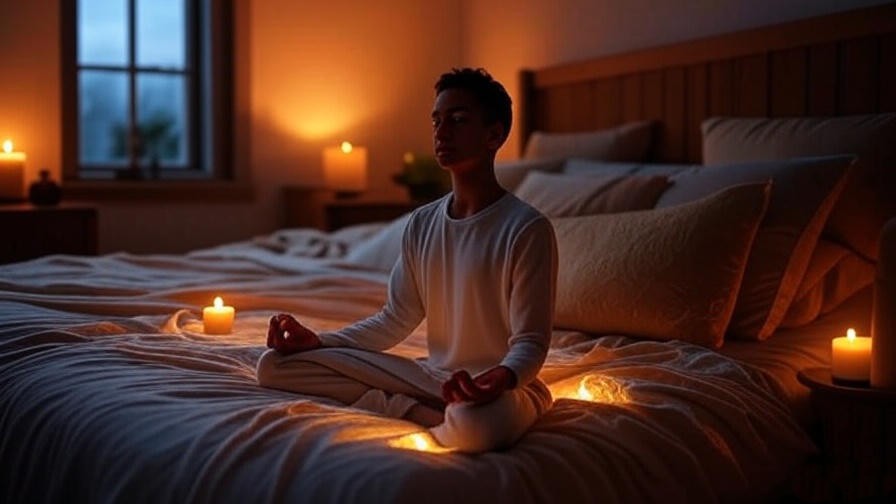
Incorporating Glorious Mysteries meditations into your bedtime routine can transform restless nights into restful ones. Create a calming ritual: meditate on one mystery, sip a warm herbal tea like chamomile, and avoid screens for at least 30 minutes afterward. For example, a 10-minute meditation on the Descent of the Holy Spirit—focusing on inner calm and inspiration—followed by five minutes of journaling your reflections can signal to your body that it’s time to unwind. Dr. Michael Breus, a renowned sleep specialist, suggests that mindfulness practices before bed can reduce sleep latency (the time it takes to fall asleep) by up to 15 minutes. Pairing this meditation with deep breathing enhances its soothing effects, making it a perfect addition to your sleep hygiene routine.
For Daily Happiness
Starting your day with Glorious Mysteries meditations can set a positive tone, boosting mood and resilience. Try a morning session focusing on the Ascension, visualizing yourself rising above challenges with purpose and joy. Spend 10 minutes meditating, then write three things you’re grateful for, inspired by the mystery’s themes. Research from the Journal of Positive Psychology (2019) shows that gratitude-based practices increase daily happiness by fostering a sense of abundance. For example, reflecting on the Coronation can remind you of your intrinsic worth, sparking joy. Incorporate affirmations like, “I am filled with hope and purpose,” to amplify the effect. Even a brief 5–10-minute session can make a noticeable difference.
For Holistic Balance

To achieve holistic well-being, combine Glorious Mysteries meditations with other wellness practices. Pair your meditation with gentle yoga stretches to connect mind and body, or take a mindful walk in nature while reflecting on a mystery. A sample weekly schedule could look like this: meditate on one mystery daily for 10 minutes, and dedicate Sunday to a full Rosary (20–25 minutes) for deeper reflection. Holistic health coach Sarah Thompson advises, “Integrating spiritual practices with physical and mental wellness creates a synergy that nurtures the whole self.” For instance, meditating on the Assumption while practicing mindful eating—savoring each bite with gratitude—can enhance your sense of balance and presence.
Common Challenges and How to Overcome Them
Difficulty Focusing

Distractions are a common hurdle in meditation, especially for beginners. If your mind wanders during Glorious Mysteries meditations, try guided audio resources (e.g., Hallow or YouTube channels like Ascension Presents) to stay on track. Alternatively, focus on just one mystery per session to reduce overwhelm. Visualization can help: for the Resurrection, picture a sunrise, symbolizing new beginnings, to anchor your thoughts. Mindfulness expert Sharon Salzberg suggests, “Acknowledge distractions without judgment, then gently return to your focus.” Keeping a small notebook nearby to jot down intrusive thoughts can also clear your mind for deeper reflection.
Time Constraints
Busy schedules can make meditation feel daunting, but Glorious Mysteries meditations are adaptable. For those short on time, try micro-meditations: spend 5 minutes on a single mystery, such as the Holy Spirit, focusing on its theme of inspiration. You can do this during a lunch break or while commuting (if not driving). Studies from the American Psychological Association (2020) show that even brief mindfulness sessions reduce stress by 10–15%. Consistency trumps duration—aim for daily practice, even if short. Set a reminder on your phone to build the habit, and gradually increase session length as your schedule allows.
Skepticism About Spiritual Practices
If you’re hesitant about spiritual practices, you’re not alone. The Glorious Mysteries can be adapted for secular audiences by focusing on their universal themes. For example, view the Resurrection as a metaphor for personal renewal or the Ascension as a symbol of rising above challenges. These meditations still offer mindfulness benefits, like reduced anxiety and improved focus, as confirmed by a 2018 study in Frontiers in Psychology. You don’t need to recite traditional prayers—use affirmations or silent reflection instead. The stories’ archetypal power resonates across beliefs, making them accessible to anyone seeking peace and clarity.
FAQs About Glorious Mysteries Meditations
Do I need to be Catholic to practice Glorious Mysteries meditations?
No, anyone can benefit. While rooted in Catholic tradition, the mysteries’ themes—hope, renewal, and connection—are universal. Adapt the practice by focusing on visualization and mindfulness rather than religious prayers.
How long does it take to see benefits?
Benefits like reduced stress or better sleep may emerge within 1–2 weeks of regular practice (3–5 sessions weekly). Deeper emotional and spiritual growth, such as increased happiness, often develops over months, per a 2016 study in Mindfulness.
Can I practice without a Rosary?
Absolutely. Use your fingers to count repetitions or simply focus on the mystery’s story mentally. The structure is flexible—prioritize reflection over rigid rules.
Are there specific times of day that work best?
Evening sessions aid sleep, while morning meditations boost positivity. However, any time you can commit to consistently works. Experiment to find what suits your rhythm.
Conclusion
Glorious Mysteries meditations offer a powerful, accessible path to inner peace, better sleep, and lasting happiness. By blending spiritual reflection with mindfulness, they address the mind, body, and spirit, fostering holistic well-being. Whether you’re new to meditation or seeking to deepen your practice, start small: try meditating on the Resurrection tonight and journal your thoughts. With consistent practice, you’ll unlock a calmer, more joyful life. Share this guide with others seeking peace, explore related articles on mindfulness and sleep, or download our free Glorious Mysteries checklist to begin. As Jon Kabat-Zinn beautifully said, “Meditation is not about stopping thoughts, but about finding peace within them.”

